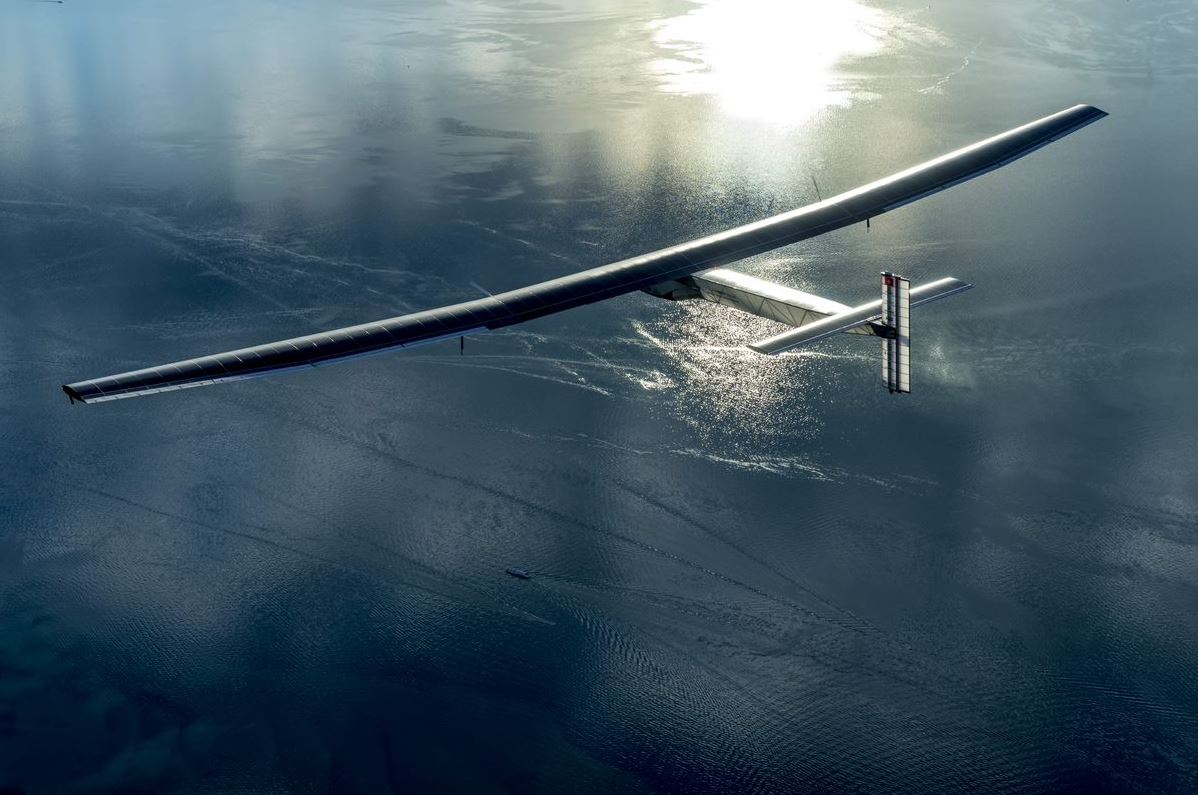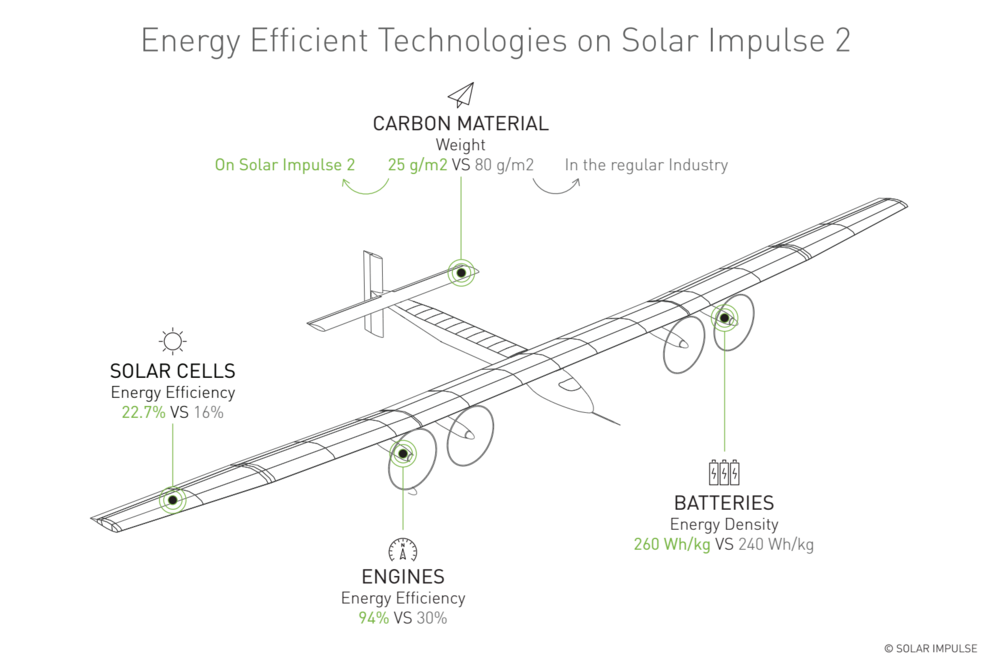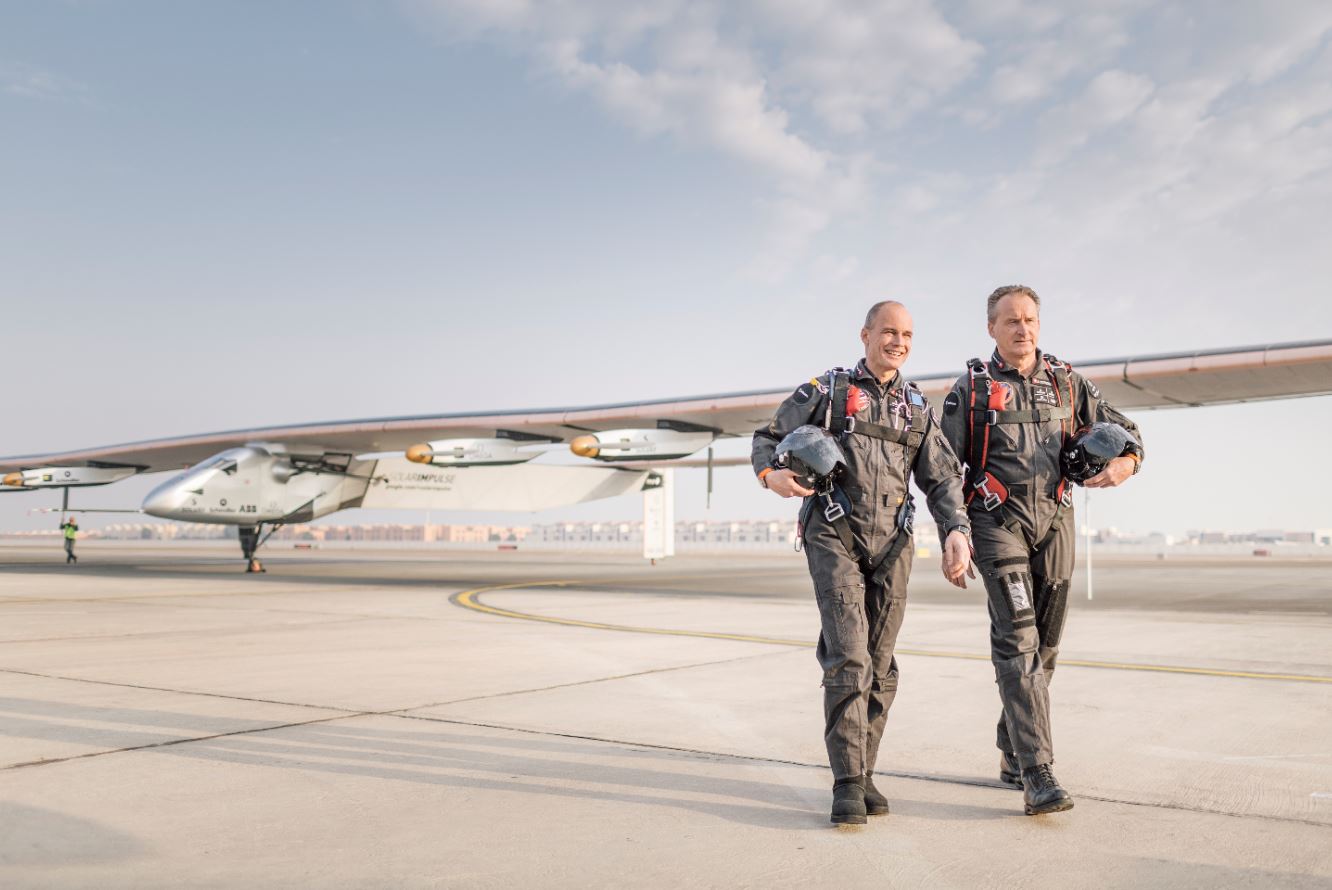Bertrand Piccard: Get aboard the Solar Impulse
Published on September 1, 2016
Photo: Solar Impulse, Bertrand Piccard
INTERVIEW
Sustainability MAG: When landing in Abu Dhabi, you successfully met your challenge and caught the general public’s attention. What is your message to the world?
Bertrand Piccard: I would like to prove that clean technologies and renewable energies can permit us to accomplish things that were previously considered impossible. If a plane can fly, day and night, without any fuel, we can imagine all of the things we could achieve with the help of these technologies on our mainland, in our everyday life, where they are even more easily exploitable than in the air, in terms of energetic efficiency, energy saving, and protection of the natural resources of our planet.
This milestone is the result of a project that has been led for numerous years. How did this idea emerge?
When I first did the round-the-world trip without stops in a hot-air balloon in 1999 the flight lasted 20 days, and each time, I was afraid to run out of gas. Every day, it was necessary to burn propane in order to heat up the balloon’s envelope, and when Brian Jones and I landed, we only had 40 kg of propane left out of the initial 3,700 kg. Due to the wake-upcall that we might fail because of fuel deficiency, I promised myself that I will do another round-the-world trip, but this time, without fuel. This is how Solar Impulse was born.
This adventure is also the story of a considerable number of people who follow you each instant. You are well surrounded, but, with your associate André Borschberg, you are ready to put yourselves in danger to make the Solar Impulse and your ideas progress… How have these risks been managed?
I think the biggest risk in life is not to fly with a solar plane but to live in a world that is burning millions of tonnes of petrol every hour, without considering gas and coal, which exhausts the planet’s resources, pollutes the nature, and changes the climate. The rest, in comparison, is much less dangerous! That being said, for the Solar Impulse, André and I trained ourselves to jump with parachutes, to survive at sea on an inflatable boat, and of course, to know all of the security systems of our plane.
Your explorer’s spirit embodies the combat against the fear of the unknown and the comfort of certainties. Your adventure is an invitation to question our assumptions and explore the wide range of possibilities…
Precisely. In everyday life, we are prisoners of our old ways of thinking and acting, of our beliefs, our paradigms, our fear of the unknown, and of everything that we have learned. The adventure consists of acquiring the necessary spirit to use the unpredictabilities of life, the doubts and question marks to stimulate our performance and creativity. In other terms, we need courage to observe our ways of functioning and try something completely new. We need to learn to question ourselves, to change, to set the bar higher, to dare dream, but mostly to learn to take the risk of working to accomplish our dreams. In this sense, we need to stop being afraid to fail, or afraid of others’ judgement. The pioneer is not always the one who succeeds, but the one who dares to try, and who is not scared to fail.
"There is no need to be 'ecological', if we simply become 'logical'"
Your success underlays the immense potential of solar energy. What is you vision on the future of this energy, and more generally, of renewable energies?
The renewable sources of energy will not be sufficient for our provision, except if our world becomes more energy-efficient, in other terms, if we manage to operate better with less energies. For this, it is necessary to replace the old-fashioned and polluting systems as fast as possible, such as combustion engines, poorly insulated houses, incandescent light bulbs, heaters and archaic distribution networks by electric mobility, well-isolated houses, LED light bulbs, heat pumps, and smart grids.
Credit: Solar Impulse
Energetic efficiency at the heart of innovation. First zero-fuel plane with perpetual autonomy. Fifteenth flight of the journey, from New York to Seville. The Solar Impulse gains altitude during the day, while recharging its batteries. At night, it uses its reserves and slowly loses altitude.
You decided to tackle a major challenge, aviation being an energy-consuming sector and one less likely to transition towards renewable energies. After this conclusive experience, when do you expect solar airlines to be implemented?
I would be crazy to believe in it, but foolish not to! Today, the Solar Impulse does not have the technologies to transport 200 passengers, but Charles Lindbergh did not either, when he crossed the Atlantic alone in 1927. Despite this, we can see an extraordinary development of commercial aviation. It is not about making all planes solar today, but to make them electric as soon as possible, giving them the possibility to recharge on the ground, at least for the short-haul flights. I think this can realistically happen in the next 10 years. And to rectify a mistake often made, we need to remember that aviation only consumes 3% of the global energy, and that the priority should be given to the 97% of the energies consumed on land, in mobility, housing, and industry.
Luxembourg is engaging in a Third Industrial Revolution, mainly aimed towards renewable energies and new technologies. According to you, are we at the dawn of a genuine revolution?
What needs to change is the perception we have of clean technologies and the protection of the environment – they now have to be considered under the profitability angle. Replacing old technologies by modern and clean technologies represents a colossal industrial project, a revolution that will permit a return to economic growth.
Did you know?
After having accomplished the most hazardous stage of its adventure, the Solar Impulse landed without obstruction on Sunday 24th of April 2016, after more than 60 hours of flight and over 4,000 km travelled between Hawaii and San Francisco. This Pacific crossing was without doubt the most dangerous of all stages!
With a pioneer spirit like yours, you will not stop here… What is your next challenge?
I am currently working not on an aerial challenge but on a terrestrial one: the creation of the International Committee of Clean Technologies. It is about bringing the actors in this domain together, who are often isolated and unknown, to create a common communication platform, to give them a strong voice, and permit them to advise governments on the implementation of modern and clean technologies that will enable a harmonious economic development of our planet.
You will take part in the COP22 in Marrakesh next November. Due to the urgent need to act, and the risk of a slowing dynamic created during the Paris Agreements, what will your message be to the Nations?
The message is that, today, clean technologies ensure a reduction of half of our CO2 emissions, whilst also creating employment and generating profits. Hence, there is no need to be “ecological”, if we simply become “logical”.
Credit: Solar Impulse
Bertrand Piccard and André Borschberg have become
aviation legend by landing on 26 July 2016 in Abu Dhabi.
SOLAR IMPULSE FIGURES
2.3 tons
which is the weight of a car
A dream that came true
Bertrand Piccard has just won his bet. As the first man having accomplished an around-the-world trip in a hot-air balloon without stopping in 1999, he decided, 17 years later, to do this trip all over again, but this time, with a solar plane. This Swiss psychiatrist and aeronaut, who is also the author of the book “Changer d’altitude”, was named the ambassador of good will by the United Nations Environment Programme.
He invented the Solar Impulse: the first zero-fuel perpetual autonomy plane and a real solar powered flying laboratory. Bertrand Piccard showed the entire world that a different world is possible; a world where clean technologies, renewable energies, and energetic efficiency improve our quality of life. Accompanied by André Borschberg in this decisive adventure, he flew over continents and oceans, making history.
A family of explorers
Testing the limits of the possible has become a family tradition, and the Piccard family is collecting records, especially those that are far from land. At sea, Jacques Piccard, Bertrand’s father, won the world record in 1960 by going as low as 11,000 meters underwater, and Auguste Piccard, Bertrand’s grandfather, who was caricaturised by Hergé as the famous Professor Calculus, was the first man, in 1931 to go as high as 15,700 meters in the sky with a stratospheric balloon. Indeed, this is a very inspiring heritage!
A dream that came true
Bertrand Piccard has just won his bet. As the first man having accomplished an around-the-world trip in a hot-air balloon without stopping in 1999, he decided, 17 years later, to do this trip all over again, but this time, with a solar plane. This Swiss psychiatrist and aeronaut, who is also the author of the book “Changer d’altitude”, was named the ambassador of good will by the United Nations Environment Programme.
He invented the Solar Impulse: the first zero-fuel perpetual autonomy plane and a real solar powered flying laboratory. Bertrand Piccard showed the entire world that a different world is possible; a world where clean technologies, renewable energies, and energetic efficiency improve our quality of life. Accompanied by André Borschberg in this decisive adventure, he flew over continents and oceans, making history.
A family of explorers
Testing the limits of the possible has become a family tradition, and the Piccard family is collecting records, especially those that are far from land. At sea, Jacques Piccard, Bertrand’s father, won the world record in 1960 by going as low as 11,000 meters underwater, and Auguste Piccard, Bertrand’s grandfather, who was caricaturised by Hergé as the famous Professor Calculus, was the first man, in 1931 to go as high as 15,700 meters in the sky with a stratospheric balloon. Indeed, this is a very inspiring heritage!



